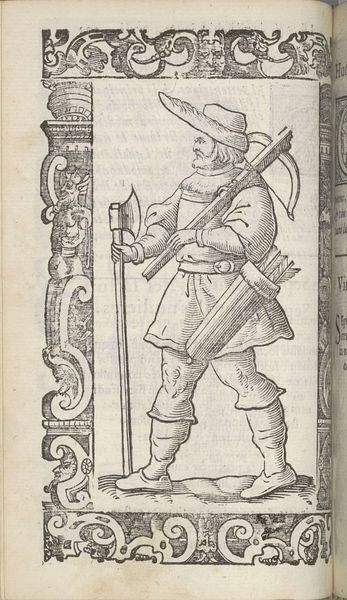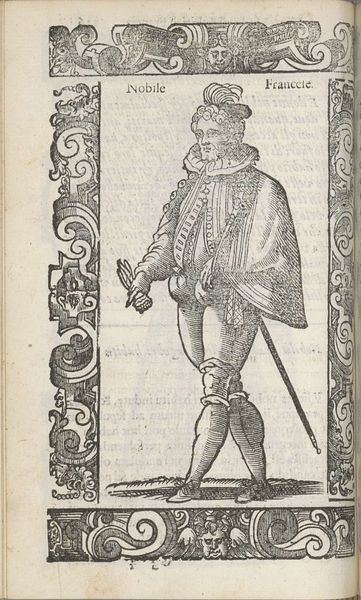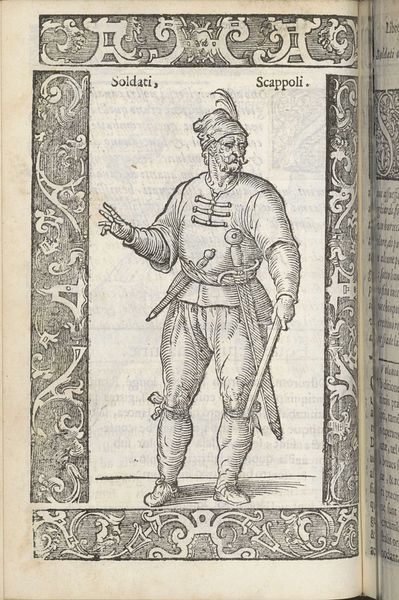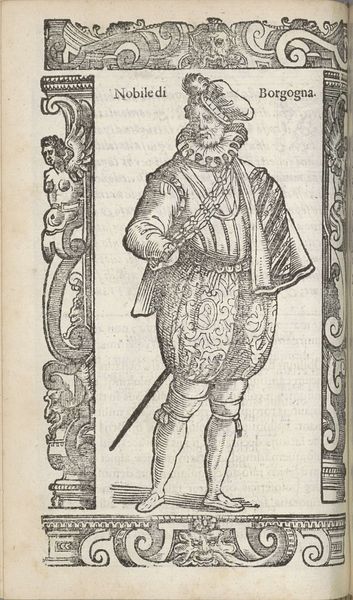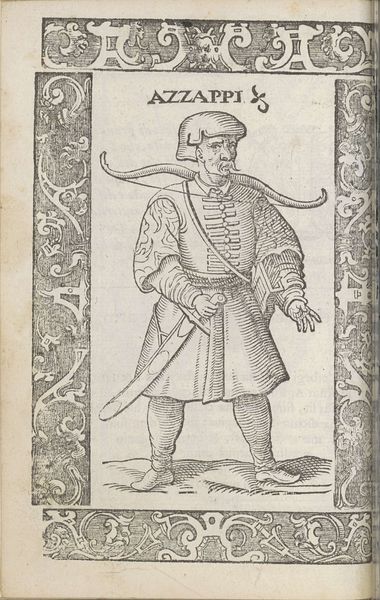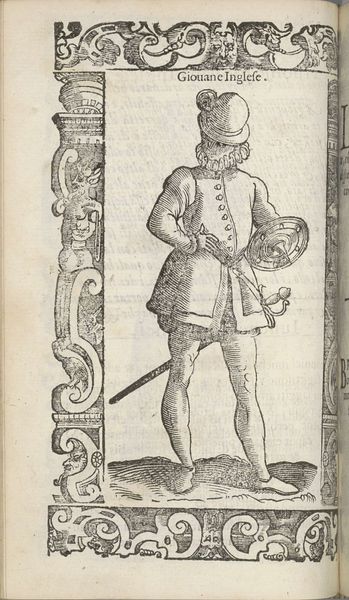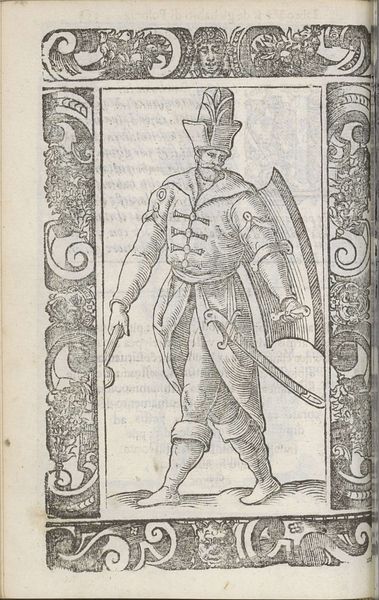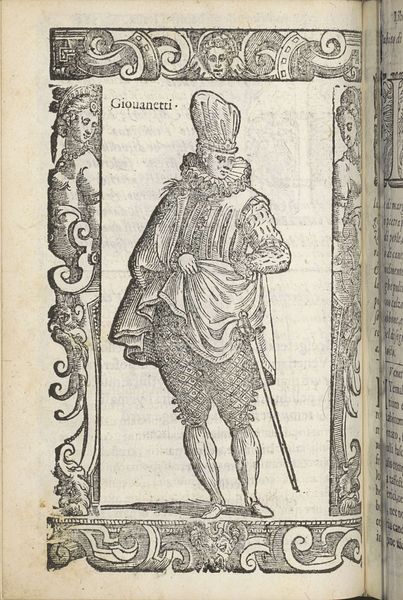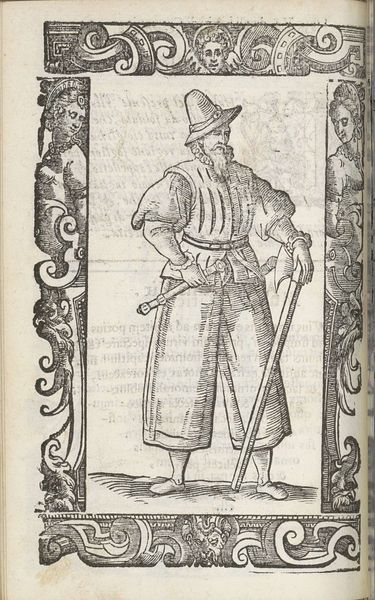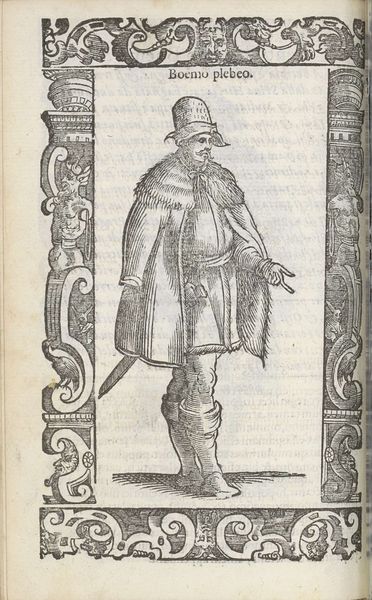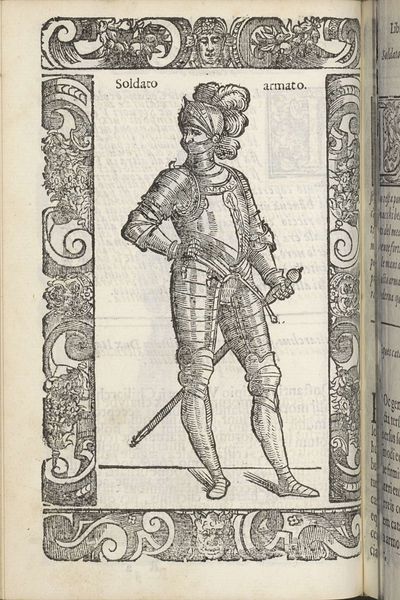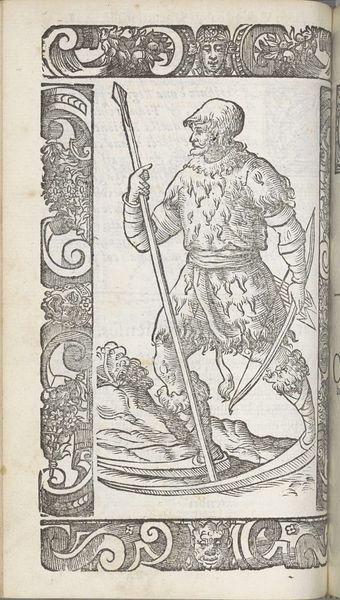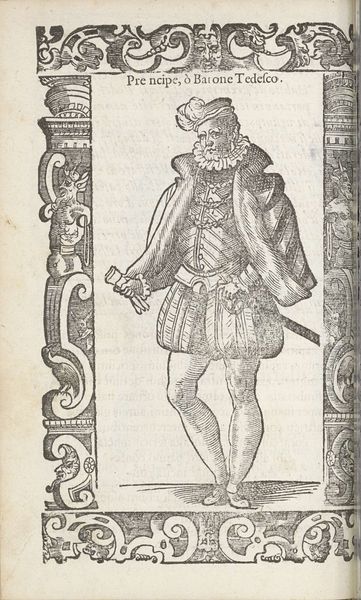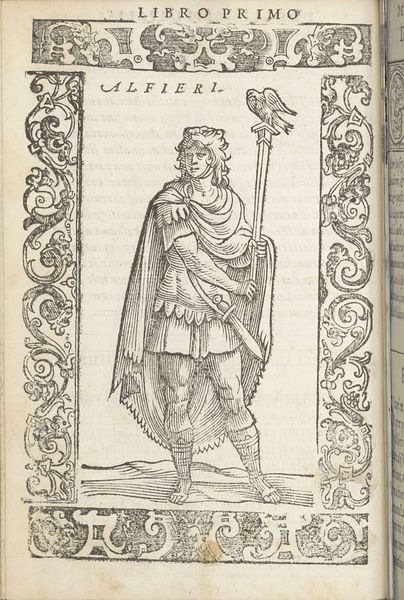
drawing, print, ink, woodcut
#
portrait
#
drawing
#
pen drawing
# print
#
figuration
#
11_renaissance
#
ink
#
woodcut
#
northern-renaissance
Dimensions: height 167 mm, width 125 mm
Copyright: Rijks Museum: Open Domain
Editor: This is "Habito di Norvegia," a print from 1598 by Christoph Krieger. It appears to be ink on a woodcut, showing a figure in costume. The detail is incredible. What compositional elements stand out to you? Curator: Notice how the figure’s dynamic pose interacts with the static border. The linear patterns etched into the wood create texture, almost tactile. Krieger uses line weight to create contrast, the figure seems to jump off the page, although bound by it. How would you describe the relationship between the figure and the frame? Editor: That's a good point. The figure almost breaks free of it, giving a sense of dynamic tension. I’m struck by the ornamentation used, how do these elements impact our reading? Curator: Precisely, the decorative elements amplify the portrait, inviting us to analyze the shapes that conform the frame, to delve into their internal logic of composition. Consider also, the strategic placement of the figure in relation to the negative space – the whiteness surrounds and enhances the figure’s boldness. It's an arrangement creating clarity, making you think what would happen to the piece if the man wore other clothing or even assumed another posture. Editor: I see it. The shapes and textures create a visually stimulating dialogue. What do you think about the tools that the subject in the portrait is carrying? Curator: Semiotically, consider those objects held. The tools, beyond their functional purpose, serve as signifiers. What narratives do they imply? Are they central to decoding Krieger’s construction? Do these tools act as performative element or not? Editor: I didn’t consider the "performativity" that you mention. The visual clues here are actually prompting questions that I can explore further. Curator: Indeed. Formalism empowers us to excavate art through internal relationships. Each stroke and contour contributes to a holistic understanding.
Comments
No comments
Be the first to comment and join the conversation on the ultimate creative platform.
